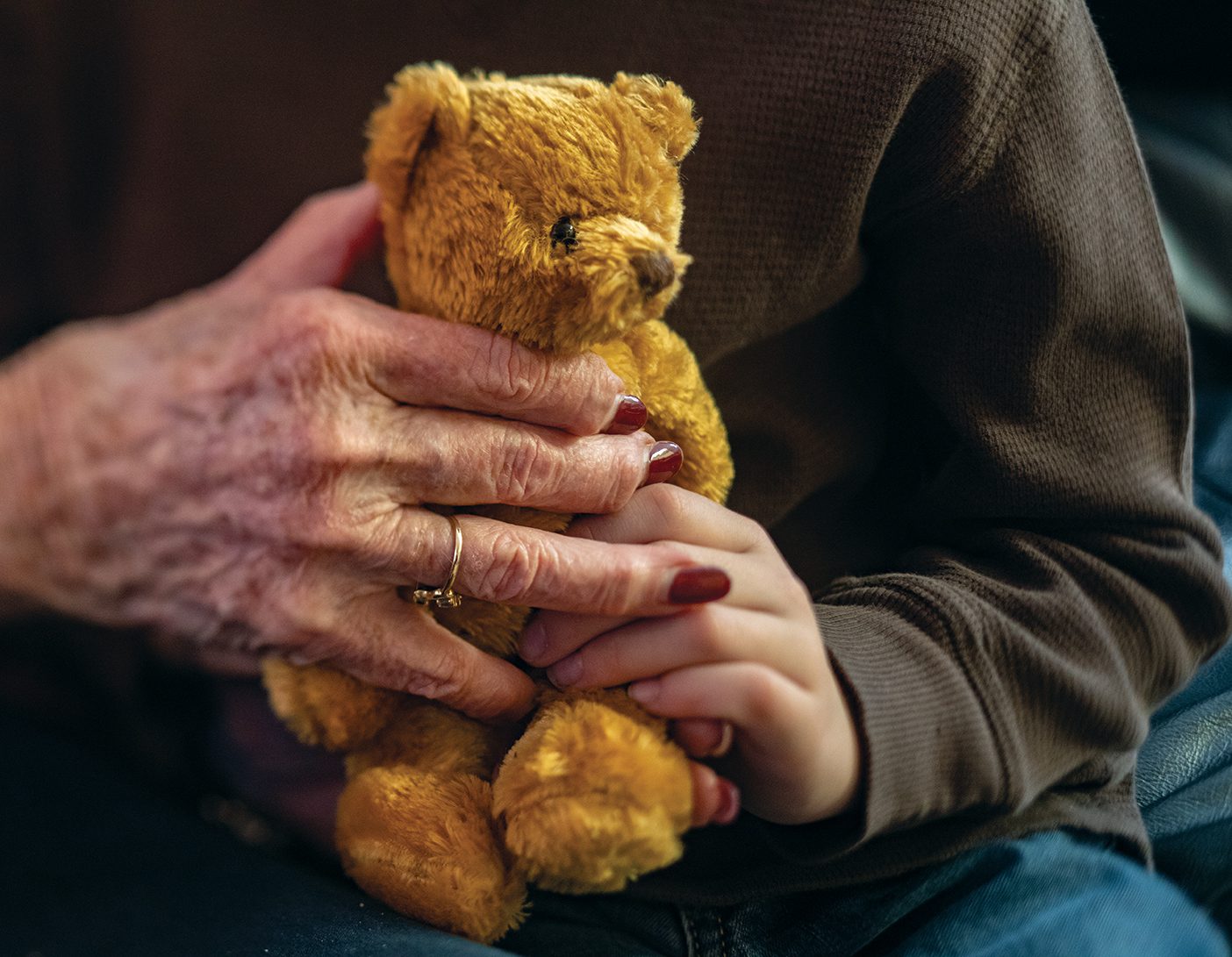Sometimes I am my grandmother’s reminder. Other days, she is mine.

In the story, she is 10 years old and swimming in a slow-moving canal behind her house—the same canal that backs up to a pig farm upstream. As she frolics a dead pig sidles up to her, gives her a blank stare, and then continues its Ophelia impression down the canal. Then another carcass floats by. And another. Her afternoon swim quickly turns into a pigs-versus-girl dodgeball match. The pigs are the winners.
She has been talking a lot about pigs lately, her aged cornflower eyes wide and her hands on her knees for support; the ensuing laughter always threatens to throw her off balance. I know this because I’ve already heard this story—three times in the past hour. But it is a good one, so I don’t mind. She giggles at the climax, every time. And every time I tell her it is a miracle she didn’t contract cholera or dysentery or swine flu.
Unfortunately, not all her stories are created equal. I’d rather swim with those dead pigs than hear the story about how her friend has lost her mind to Alzheimer’s. “It’s just so sad,” she says, pursing her lips into a sympathetic line. “She isn’t what she used to be.” I want to respond, but I briefly look away instead.
My grandmother is a formidable piemaker, an avid traveler, a poor budgeter, a crossword puzzler, a quilt maker, a bad driver, a loyal mother, a faithful churchgoer, a Diet Coke addict, and a whiz with names. She is an ocean-deep personality struggling to exist in a mind with loose fittings and leaky corners. When speaking about her, the words is and was do a strange dance out of my mouth where one leads and the other follows, only to switch places depending on the moment. Sometimes Grandma is everything she once was. On other days, she was what she no longer is.
She figures she has a decade before her 5-foot 3-inch body submits its resignation notice. And she’s probably right. Her father lived to be 98 years old and told inappropriate jokes until the day he died. Her bloodstream flows with Germanic stubbornness and caffeinated drinks and isn’t about to slow down anytime soon. But her mind hasn’t gotten the memo. Every day Grandma wades deeper and deeper into the murky waters of her memory. And yet, somehow, I feel like I am the one drowning as I desperately try to pull her to the surface for a cleansing breath of reality. “Grandma, they didn’t steal your things. They are safe.” “Grandma, it’s October, not June.” “Grandma, your grandchild’s name is . . .”
We’ve decided to move her to safer waters—from a 2,400 square-foot home with an expansive yard to an assisted-living apartment with a view of a putting green. My job is to help her remember the place’s perks: no stairs, three prepared meals, daily activities, and free Diet Coke dispensers. When I’ve finished my sales pitch, I try to help her forget the pain of losing her independence, of permanently parking her car, or of leaving the home she made with my grandfather.
Last week, I caught her sitting on the couch with my youngest son—her 14th great-grandchild. He has spent his 7 years convincing us that he is half artist and half tyrant. He is not an easy child.
But as I peer around the corner to spy on the two of them, I see her patiently listening as he introduces his stuffed animals to her—all 22 of them. She nods and repeats what he says about each one. She’s lost in the steady stream of his dialogue, but she anchors herself to his assertive voice, his unmitigated enthusiasm, and his eyes, the color of wet river rocks. I’ve rarely seen him so happy.
When I finally walk into the room, she looks at me and pats my son’s knee. “This is my buddy,” she says as he reaches for another stuffed animal. For a moment, I’m caught speechless in the ebb and flow that is family and memory—each of us taking turns to help one another remember what should never be forgotten.
Erika Price is a mother of five boys and lives in Cedar Hills, Utah.
Share a family story: In Letters from Home BYU Magazine publishes essays by alumni about family-life experiences—as parents, spouses, grandparents, children. Essays should be 700 words and written in first-person voice. BYU Magazine will pay $350 for essays published in Letters from Home. Send submissions to lettersfromhome@byu.edu.












